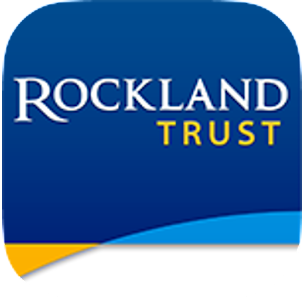Massachusetts is the 16th most populated state in the US, and it has plenty of banks and credit unions to consider.
This post will cover the best banks in Massachusetts. From local banks to national chains — you’ll get an idea of where MA residents are stashing their cash.
9 Best Massachusetts Banks & Credit Unions
Here are the top banks in Massachusetts you can open an account with today:
- Citizens Bank: Best for Early Direct Deposit
- TD Bank: Best for Late Banking Hours
- Rockland Trust Bank: Best for Customer Satisfaction
- Santander Bank: Best Savings Account Selection
- Eastern Bank: Best for Community Banking
- Capital One: Best for Online Banking
- Middlesex Savings Bank: Best Checking Account Selection
- Bank of America: Large Bank Presence
- Mass Bay Credit Union: Special Savings Account Options
See the Best Bank Bonus Offers & Promotions in Massachusetts
1. Citizens Bank 
Best For: Early direct deposit
Citizens Bank is not as large as BofA or TD Bank, but it is the most popular bank in Massachusetts, with 192 of its 1,100 branches located in the state. It has 3,100 free ATMs and solid features like early direct deposit and overdraft protection.
Accounts
Citizens Bank has a handful of checking accounts, including student checking and Private Client checking. The One Deposit Checking from Citizens™ has a waivable monthly fee of $9.99 and only requires one monthly deposit to waive it. There are no minimum balance requirements, and it includes a robust mobile app.
Citizens Bank offers many ways to save money, and each of their savings accounts doesn’t have a minimum opening balance requirement. While the interest rates leave a lot to be desired, each savings account has a waivable monthly fee and helps you reach your financial goals.
Citizens Bank offers various bank accounts and financial services, including personal banking, small business banking, and investment accounts. Citizens Bank also provides credit cards, money market accounts, personal loans, and mortgages.
Pros:
- Well-rated mobile app
- Most regional bank branches in MA
- Over 3000 fee-free ATMs
Cons:
- Only located in 15 states
- Most accounts have fees
Learn More:
2. TD Bank 
Best For: Late banking hours
TD Bank is one of the 10 largest banks in the U.S. in total assets, with over a thousand locations along the East Coast; around 153 branches are in Massachusetts.
Accounts
TD Bank, which self-proclaimed itself as America’s most convenient bank, offers several levels of checking and savings accounts, a money market account, CDs, and credit cards. Its fees are in line with those of other large regional banks, and its annual percentage yield (APY) is not the best. However, many people seem to be happy with TD because the bank has won several notable awards.
TD Bank has three checking accounts, one of which is checkless and has no daily balance requirement. It also doesn’t have overdraft fees. Its other two checking accounts have waivable monthly maintenance fees, but only the TD Beyond Checking account earns interest. TD Bank also offers a Simple and Signature Savings account, but you’ll need a minimum balance of $100,000 to earn interest on the Signature Savings account.
Pros:
- Top-rated customer service
- Over 150 locations in MA
- Numerous account options
Cons:
- Low savings rates
- Annoying monthly service fees
Learn More:
3. Rockland Trust Bank 
Best For: Customer satisfaction
Rockland Trust is an FDIC-insured community bank with 120 locations in Massachusetts and Rhode Island. In 2022, the bank tied for #1 in customer satisfaction in New England.
Accounts
Despite its smaller size, Rockland Trust offers the same variety of account options as national chains including a free checking account. Two of their checking accounts pay interest, and you can waive the monthly fees by meeting their minimum balance requirements. Rockland Trust also offers various savings accounts including a money market savings, and of course CDs.
You can also get a mortgage and home equity line of credit (HELOC). Overall, there are few fees or minimum balance requirements. Its savings rates are low, however. As for CD rates, they are marginally higher. Most notably, a 7-month CD pays a 4.0% APY. Unfortunately, you will have to apply for the 7-month CD at a branch.
Rockland Trust also offers small business and commercial banking products, as well as investment and wealth planning services.
Pros:
- Solid community bank
- Fewer fees than big banks
- Excellent customer service
Cons:
- No branches outside of MA and RI
- Limited credit card options
Learn More:
4. Santander Bank 
Best For: Savings account selection
Santander Bank is a subsidiary of the Spanish-based Santander Group. The bank has 415 branches and is headquartered in Boston. Santander offers personal and small business checking, several deposit account options, and convenient features like online bill pay. They also offer small business and commercial banking products.
Accounts
Santander Bank has three checking accounts and four savings products. The monthly fees on their checking accounts range from $4 – $25, and only the Santander Select® account earns interest. You need $10 – $25 to open an account, and all accounts include mobile banking. Santander Bank’s savings accounts offer many ways to reach your savings goals, including money market accounts, CDs, and traditional savings accounts.
Santander Bank also offers a no annual fee cash-back credit card and they often run sign-up bonuses.
Pros:
- Many account options
- Low daily balance requirements
- International branches for world travelers
Cons:
- Most accounts have monthly fees
- Limited credit card options
Learn More:
5. Eastern Bank 
Best For: Community banking
Eastern Bank is among New England’s most popular community banks, with more than 120 locations in Massachusetts, Rhode Island, and New Hampshire.
The bank offers personal, small business, and commercial banking, and a full-service online platform with features like mobile check deposits.
Accounts
Eastern Bank also offers traditional savings accounts and money market savings. Their Premier Money Market account offers higher APYs, but on a tiered basis with customers with $250,000+ balances earning the most. Investment guidance, wealth management, retirement planning, and fiduciary services are also available for high-net-worth individuals.
Pros:
- Robust investment services portfolio
- Well-suited for local businesses
- 24/7 customer support
Cons:
- Low APY on savings deposits
- Some monthly fees
Learn More:
6. Capital One 
Best For: Online banking
Capital One is one of the top ten largest consumer-facing banks in the U.S., operating as a hybrid — meaning it’s both a digital and traditional bank. Though Capital One’s online accounts and credit cards are available nationwide, its branch locations are limited to around 700 locations.
Accounts
The good news is that Capital One offers some of the best deposit accounts you’re likely to find. Most of its online accounts have no fees, and its savings rates match those of leading online banks. Plus, you can make debit card purchases a few days in advance with early direct deposit.
Capital One has one checking and traditional savings account. The savings account pays an impressive 4.35%, and with the checking account, you get access to 70,000+ fee-free ATMs nationwide. You don’t have to worry about minimum balances. The accounts also offer mobile deposit and instant alerts.
Capital One also offers business and commercial banking and credit card products.
Pros:
- Fewer fees than larger competitors
- Top-rated savings accounts and credit cards
- High-quality mobile app
Cons:
- Not many branches in Massachusetts
- No money market accounts
Learn More:
7. Middlesex Savings Bank 
Best For: Checking account selection
Founded in 1835, Middlesex Savings Bank is a community bank located just outside Boston in Natick, MA. Today, it is the largest mutual bank in Massachusetts, with 32 branch locations throughout the state.
Accounts
Though it’s the smallest bank to make this list, Middlesex Savings offers a variety of account options and modern online tools on par with other banks. Personal checking and savings accounts, CDs, mortgage loans, retirement accounts, personal loans, and auto loans are just a few of the services that Middlesex provides.
Middlesex Savings Bank offers three ‘regular’ savings accounts, one that doesn’t require a minimum balance and two that require as much as $50,000 in combined balances to get the account perks. They also offer a student and military checking account. They also offer a handful of savings accounts, including money fund accounts that have tiered interest rates based on your balance ranging from 1.45% to 1.65%.
Middlesex Savings Bank also offers business checking and savings accounts.
Pros:
- True community bank feel
- Impressive account menu considering its size
- Well-suited for Boston suburban residents
Cons:
- Not as many branches as competitors
- Limited credit card options
Learn More:
8. Bank of America 
Best For: Large bank presence
Bank of America (BoA) is one of the biggest banks in the world and has the most significant presence in Massachusetts out of large national chains. It offers many deposit account options and banking services, including small business banking. As is standard with big banks, BoA tends to charge higher fees and offers mediocre interest rates on savings deposits.
Accounts
Bank of America has three checking account options, including SafeBalance Banking®, which is checkless banking and doesn’t allow overdrafts, so you don’t have to worry about spending more than you have. They also have Advantage Plus and Relationship Banking. They both offer more features, including multiple digital ways to pay, but the Relationship Banking account also pays interest.
For savings, Bank of America has a basic savings account, CDs, and IRAs. Depending on the type and term, you could earn as much as 4.75% APY on your CDs, or play it safe with a much lower rate on your savings account. As long as you keep a balance of $500, you won’t pay any monthly fees on it.
Pros:
- Many locations in MA
- Nationwide presence
- Plenty of account options
Cons:
- More fees
- Low APY on savings deposits
Learn More:
9. Mass Bay Credit Union 
Best For: Spcial Savings Account Options
Mass Bay Credit Union has served the local community since 1939. It is a full-service financial institution offering a wide range of products and services, from mobile banking to home and auto loans. They also include business banking products.
Membership is open to:
- Anyone who lives, works, or attends school within Norfolk County, Suffolk County, Middlesex County, Abington, Brockton, Hanover, Hingham, Lynn, Marshfield, Norwell, Peabody, Rockland, Saugus, Scituate, and Whitman
- Employees or former employees of Massachusetts Bay Transportation Authority (MBTA)
- Employees or former employees of entities affiliated with MassDOT
- Employees or former employees of the Massachusetts State Police
- Immediate Family Members of Mass Bay members
Accounts
The account selections at Mass Bay Credit Union are simple. There are two checking and one savings account. The free checking account has no minimum balance and no fees. The NOW Checking account earns interest and has features like unlimited ATM access, mobile check deposit, and Apple Pay. You can waive the monthly fee by receiving direct deposit.
Mass Bay has one traditional savings account but offers a money market account, vacation and holiday club savings, certificates (like CDs), and IRAs. They also have a Kids Club savings account that kids can open with as little as $5.
Pros:
- Wide range of products
- Fee-free checking
- Early Pay with direct deposit is available up to 2 days early
Cons:
- Must be a member
- Only 4 branches in South Boston, Everett, Quincy, and the Seaport District
Learn More:
How To Choose The Best Bank In Massachusetts
At BankBonus.com, we’re committed to providing consumers with the resources they need to select a bank or credit union. Here’s an overview of the steps we recommend our readers take to choose a bank:
- Understand different types of banks: You have access to traditional banks, online banks, credit unions, and neobanks. It’s important to understand the differences between them and determine which type of institution aligns best with your preferences.
- Choose the right account: Checking, savings, money market, and certificate of deposit accounts are the most common types of bank accounts. Understand what each offers and choose a bank with the type of account(s) you need.
- Look for low-fee banks: Account fees can add up quickly. As you compare bank accounts, look for an account that doesn’t charge unavoidable monthly maintenance fees, overdraft fees, and ATM fees.
- Consider branch and ATM access: If having access to branches matters to you, choose a bank with physical locations. Regardless, you should prioritize banks that have a vast ATM network or reimburse ATM fees.
- Compare account features: Determine which features you’re looking for. A few common bank account features to consider are interest, cashback, mobile features, cash deposits, and minimum account balance requirements.
- Check out reviews and ratings: It’s crucial to pick a reputable bank. To get an idea of a bank’s customer experience, you can read expert reviews and look to sources like TrustPilot, the Better Business Bureau, and J.D. Power.
- Read the fine print: Don’t sign up for an account without understanding the terms and conditions. Make sure the account is FDIC or NCUA insured and get a sense of its requirements, fees, and expiration dates for bank bonuses.
- Look at the bank’s additional products: If you want to manage all of your finances under one roof, look into each bank’s additional products. A lot of banks also offer credit cards, wealth management, investment accounts, and loans.
Read our Full Guide to Choosing a Bank
Our Methodology
The BankBonus team has analyzed dozens of banks to provide our readers with thoroughly informed and accurate reviews. We evaluated digital financial platforms, online banks, regional banks, and national banks with a presence in Massachusetts.
Our assessment of each bank factors in these considerations:
- Product lineup: We review the types of accounts, loans, and services offered by each bank, as well as the number of accounts.
- Fees and pricing: We also consider each institution’s fees, including monthly maintenance fees and other service charges.
- Account features: To compare banks, we take a close look at the features, limits, and capabilities each one has to offer.
- Interest: Along with these features, we consider whether or not the bank offers interest-bearing accounts and compare their rates to industry averages.
- Brand reputation: The bank accounts we recommend have been carefully vetted to ensure they are legitimate, secure, and backed by FDIC insurance.
- User experience: Additionally, we consider the ease of use and availability of resources on each bank’s website and factor in reviews of the mobile app from the Apple App Store and Google Play Store.
- Branch and ATM access: To gauge convenience, we also look at each bank’s branch and ATM availability and consider their ATM reimbursement policies.
- Customer service: In our review process, we also explore their customer service channels, hours of availability, and third-party reviews.





Comments are closed.
Comments are closed here.